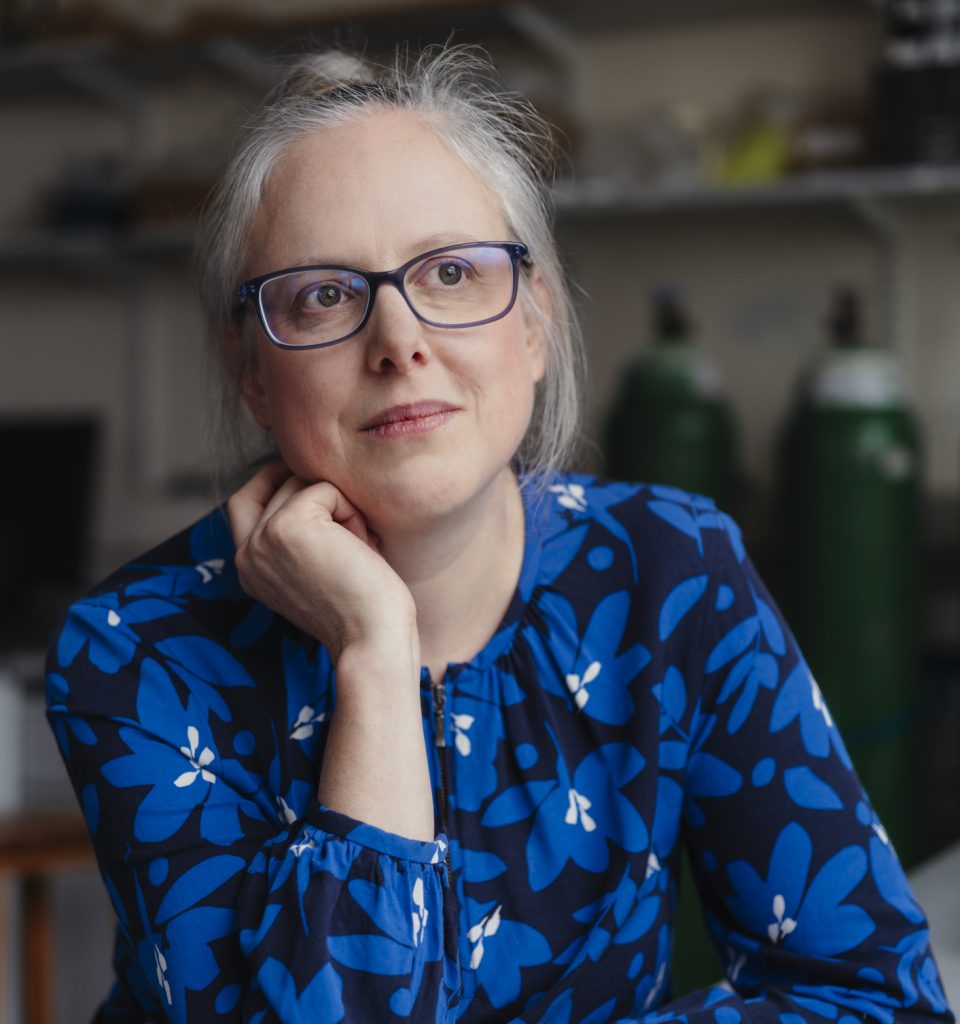A collaboration led by Professor Kylie Vincent, Fellow and Tutor in Chemistry at Jesus, has been awarded a Royal Society of Chemistry Horizon Prize for developing a cheaper and more sustainable method to manufacture important amine compounds.
The Horizon Prizes celebrate discoveries and innovations that push the boundaries of science. The Biocatalytic Nitro Hydrogenations team, led by Professor Vincent in the Department of Chemistry, is a collaboration between Professor Vincent’s group and HydRegen, a spin-out from the University of Oxford, and received the Chemistry Biology Interface Horizon Prize.

Professor Kylie Vincent, Tutorial Fellow in Inorganic Chemistry 2008-present. ©PhilippaJames
The prize recognises the group’s achievements in developing a greener process to synthesise amine-containing chemicals. Turning nitro compounds into amines is a vital step in making many medicines, agrochemicals, and materials. However, current industrial methods often rely on wasteful chemicals or expensive precious metal catalysts, which can be inefficient and lack selectivity.
Professor Vincent explained: “Our new biological catalyst technology provides a selective and sustainable way of preparing amine compounds which avoids heavy metals, and offers environmental and cost advantages over conventional methods. The system exploits an enzyme called hydrogenase, which can split hydrogen gas to release electrons and protons. The key to our success was finding a way to channel these protons and electrons into nitro-functional groups to facilitate their reduction to amines.”
The team report that their system can cut costs by 40% and reduce carbon dioxide emissions by a factor of three compared to traditional metal-based processes. Following support from Oxford University Innovation (OUI) to patent this innovation, the technology is now licensed to HydRegen, who have made tremendous progress in scale-up for commercial application. Ultimately, this innovation could allow cleaner, cheaper, and more sustainable manufacturing – from essential medicines like paracetamol to complex pharmaceutical ingredients.
Professor Vincent added: “It is wonderful to have recognition for the diverse, yet crucial, contributions from so many people who have worked on different aspects of this catalyst system – from the very first demonstration, through to our experiments to understand the mechanism, right through to large-scale application.”
The Royal Society of Chemistry Prizes have celebrated excellence in the chemical sciences for more than 150 years. Two other Oxford researchers also received prizes this year. To read the full story, click here.
